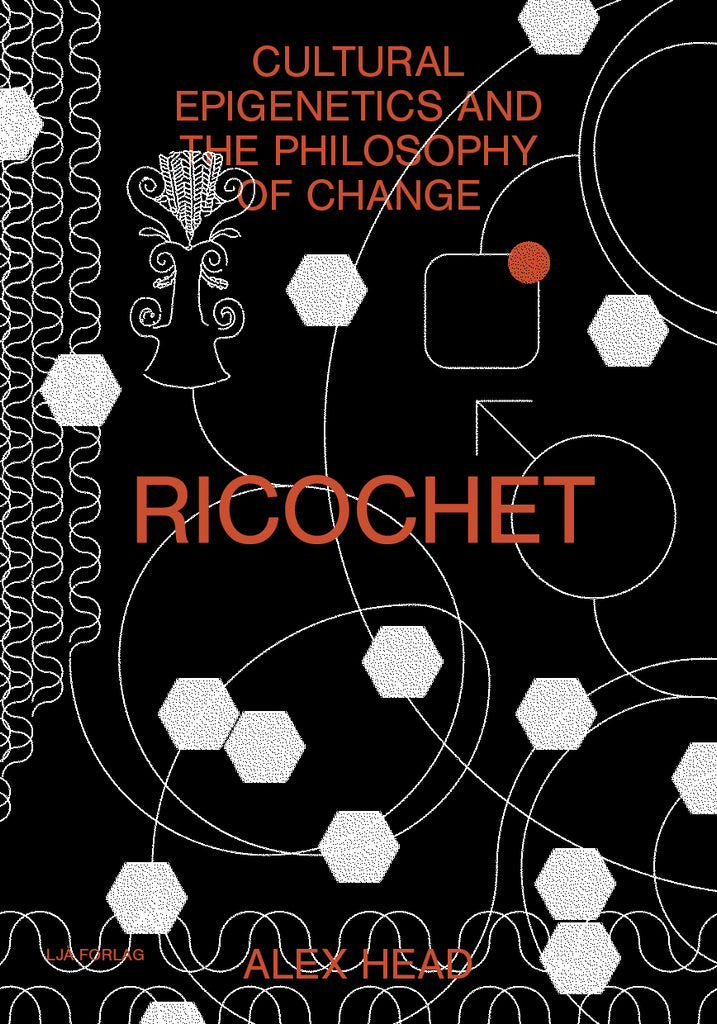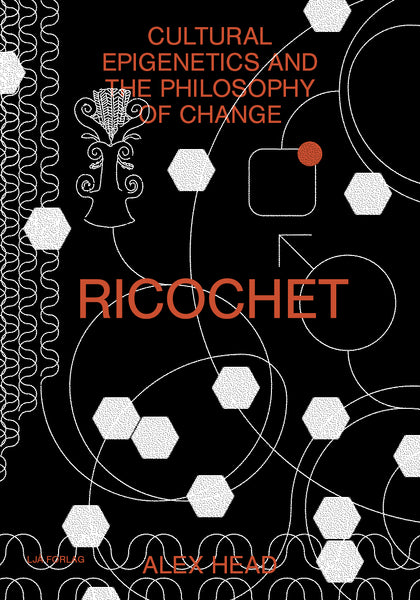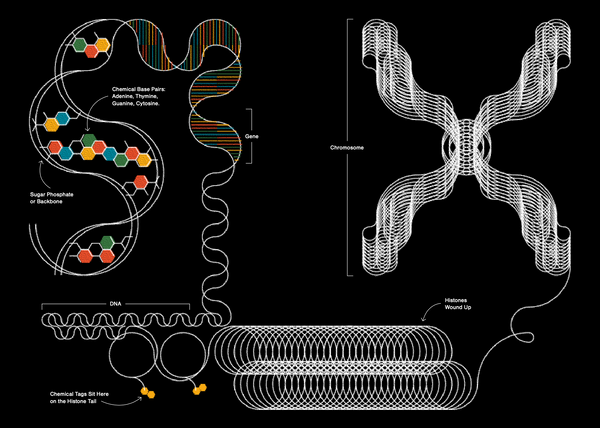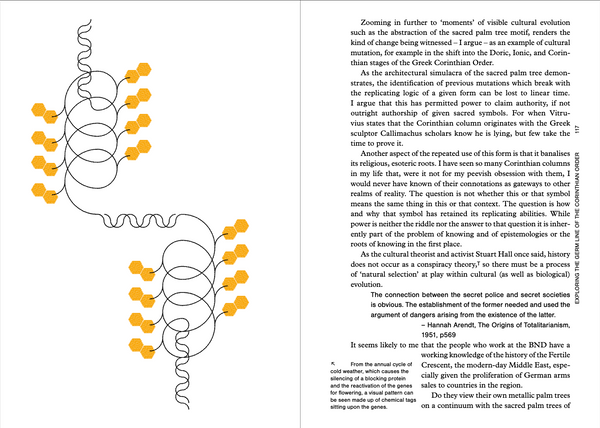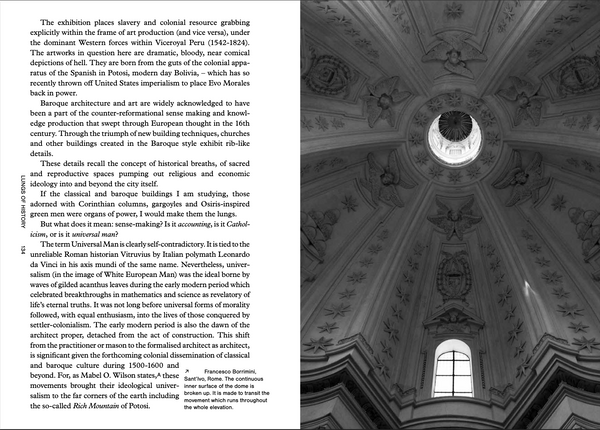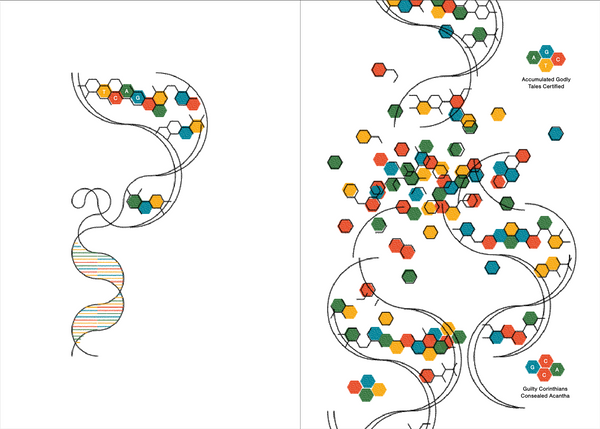Alex Head
Ricochet - Cultural Epigenetics and the Philosophy of Change
The term ‘ricochet’ is a means to discuss unintended consequences, rapidly delivered information and viral outbreaks, but it is also used to describe the way in which sound echoes or reverberates against objects in space.
As the saying goes, genetics loads the gun and the environment pulls the trigger. Initiated during the return of politicised radical hatred across the globe in 2017, the author set out to understand how Far Right ideas had begun to mutate. What he discovered throws light on mechanisms of cultural imperialism and hegemony that stretch all the way back to the Fertile Crescent of the tenth millennium, with consequences for the urban environments of future and current generations.
The book centres around two forms of biological change: organic mutation and the more recent field of epigenetics. Culture, it is argued, alters not only our minds, but also the very bodies in which we live.
It is important to note that the work of cultural epigenetics developed here argues for the determination of human biology by culture and not the other way around. That cultural expressions can be shown to replicate in cyclical patterns over time does not mean that they are inevitable.
Intertwining these fields of investigation the author draws on the work of Hannah Arendt, Ibram Xolani Kendi, Judith Butler and others to develop a philosophy of change grounded in comparative cultural anthropology.
Ricochet - Cultural Epigenetics and the Philosophy of Change is the second book by British-German artist and researcher Alex Head, him/he.
Price: 299 NOK
304 pages, soft cover
Ljå Forlag 2021
ISBN: 978-82-999761-6-9

